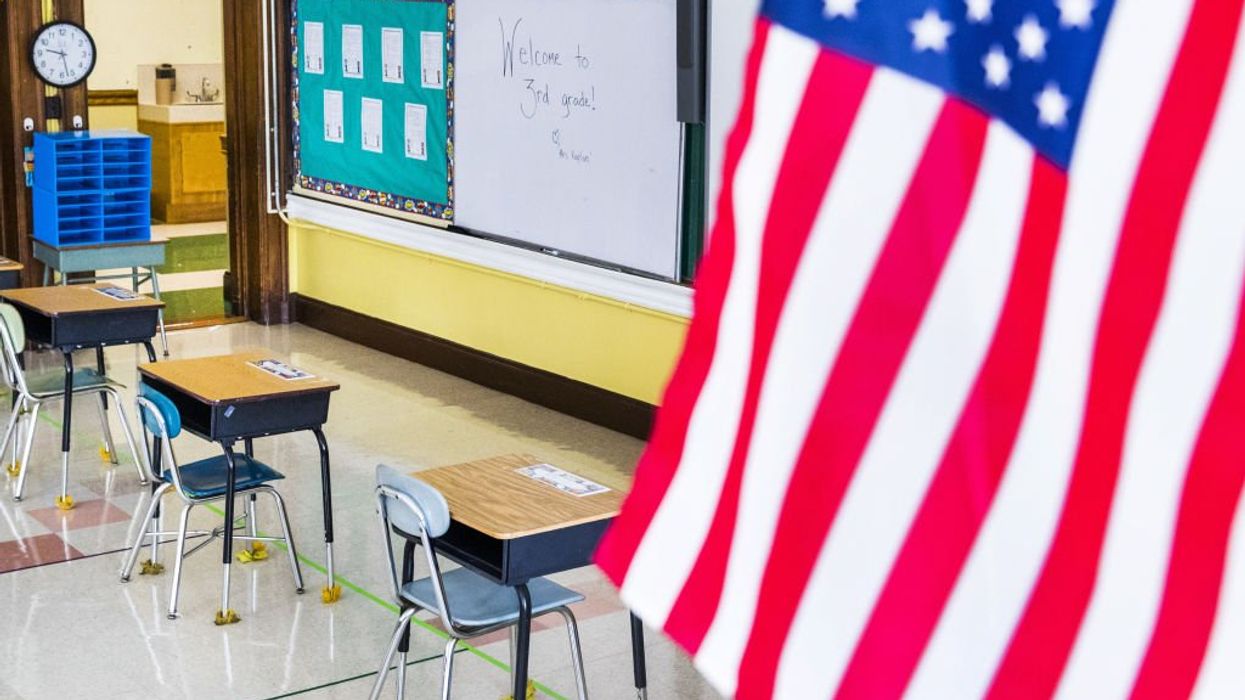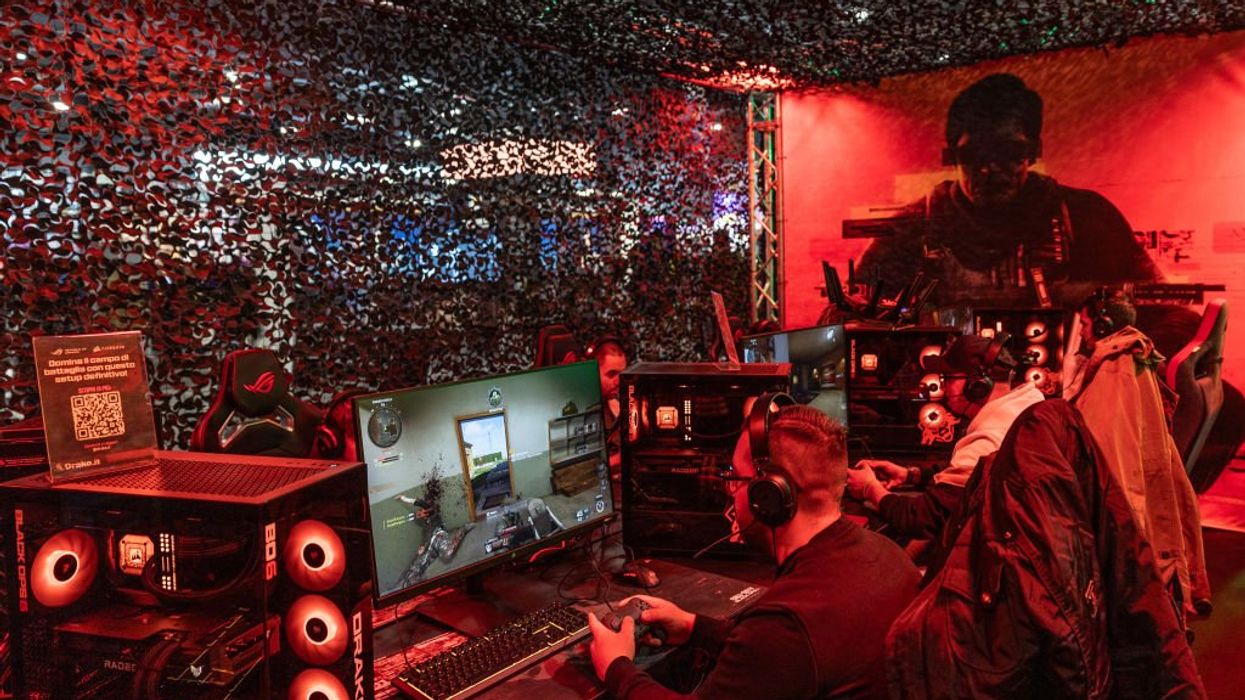New York City Mayor Bill de Blasio has publicly offered his support for closing public schools for two Muslim holidays, Eid al-Fitr and Eid al-Adha, and the Lunar New Year -- but is his proposal to offer time off for Islamic holy days constitutional?
David French, senior counsel to the conservative American Center for Law and Justice, told TheBlaze that offering Muslim holidays off is a bit tricky.
"It's tough to discern what are the numbers of people involved here," he said. "New York is obviously a melting pot of a city. There are many Hindus. We know there's a very large Christian and Jewish population."
 New York City Mayor Bill de Blasio listens to a question while testifying before a joint legislative budget hearing on Monday, Jan. 27, 2014, in Albany, N.Y. (AP/Mike Groll)
New York City Mayor Bill de Blasio listens to a question while testifying before a joint legislative budget hearing on Monday, Jan. 27, 2014, in Albany, N.Y. (AP/Mike Groll)
The central issue is why New York City officials have decided to honor specific faiths with days off.
Consider that while Muslim holidays will potentially be offered, Hindu holy days are not currently on the table. So in order to justify the Islamic accommodation, there must be a secular purpose; otherwise, every religion would need to have its revered days integrated into the school calendar.
"Discharging school for religious observances, to be constitutional, has to be done for a secular, religiously neutral reason," he said. "It can’t be done for the purpose of 'honoring' one faith over another but rather because — to take one example — absenteeism may reach an unacceptable level depending on the religious makeup of the community."
French said holidays might be treated differently in Dearborn, Mich., and Brooklyn, N.Y., depending on religious populations -- all based on the religious groups that dominate each area.
Farhan Memon, co-founder of the Muslim Bar Association of New York, said in a blog post Thursday that official Muslim holidays in New York City "could be unconstitutional."
"The separation of church and state is an important civics lesson that many of my Muslim friends on Facebook are ignoring as they celebrate Mayor Bill de Blasio's decision to declare school holidays on the Muslim holy days of Eid-ul-Fitr and Eid-ul-Adha," Memon wrote. "By recognizing the celebrations of Christians, Jews, Muslims and the Chinese, but pointedly not Hindus, the New York Public School system has set up a hierarchy of religions that belies the equality of citizenship our children are supposed to be learning in school."
Memon, a Muslim, said that he sympathizes with believers who have not traditionally had their holy days off, but that there must be a secular reason for religious-based school closings.
"There are times when economic realities intersect with religious practice and create valid secular reasons that do justify school closings on religious holidays like Yom Kippur and Rosh Hashanah," he wrote. "The [New York] Department of Education doesn't track the religious affiliation of teachers, but given New York's large Jewish population and its historic involvement in the teaching professions it's safe to say that there are thousands of Jewish professionals employed in schools."
In providing the Jewish example, Memon noted that the district would be forced to hire substitute teachers, which would pose monumental costs if schools remained open on Jewish holidays; the same is true of Christmas celebrations among Christians.
By contrast, Memon said, "a secular purpose ... does not exist when it comes to Muslims." While there are surely Muslim teachers, Memon said the numbers likely don't compare to the amount of Jews and Christians.
 New York City Mayor Bill de Blasio attends a roundtable discussion between parents of elementary school children and politicians, Feb. 4, 2014 in New York City. (Getty Images/Andrew Burton)
New York City Mayor Bill de Blasio attends a roundtable discussion between parents of elementary school children and politicians, Feb. 4, 2014 in New York City. (Getty Images/Andrew Burton)
Further, he said, the state's Department of Education could find itself embroiled in a theological debate about when Eid actually falls.
"Muslims follow a lunar calendar by which the precise date of Eid is determined by the sighting of the new moon that marks the beginning of the lunar month," he wrote. "Since the setting of a school calendar for thousands of students, teachers and administrators cannot be dependent on the vagaries of lunar observance any Eid date set by calculations will be viewed as invalid by those Muslims who are more orthodox."
It's unclear how many Muslims are in the New York City area. Estimates vary widely -- from 200,000 to 1 million -- though "A Journey Through NYC Religions" estimated in 2010 that there are 600,000 Muslims in the city.
It's really all about demographics and the numbers of Islamic teachers and students who would be impacted. While it's not overtly unconstitutional, as French said, without definitive numbers, it's "tricky."
—

 New York City Mayor Bill de Blasio listens to a question while testifying before a joint legislative budget hearing on Monday, Jan. 27, 2014, in Albany, N.Y. (AP/Mike Groll)
New York City Mayor Bill de Blasio listens to a question while testifying before a joint legislative budget hearing on Monday, Jan. 27, 2014, in Albany, N.Y. (AP/Mike Groll)
 New York City Mayor Bill de Blasio attends a roundtable discussion between parents of elementary school children and politicians, Feb. 4, 2014 in New York City. (Getty Images/Andrew Burton)
New York City Mayor Bill de Blasio attends a roundtable discussion between parents of elementary school children and politicians, Feb. 4, 2014 in New York City. (Getty Images/Andrew Burton)


